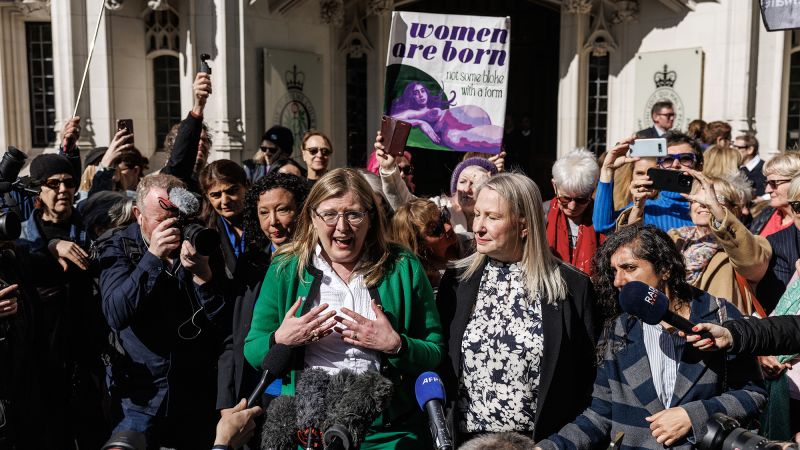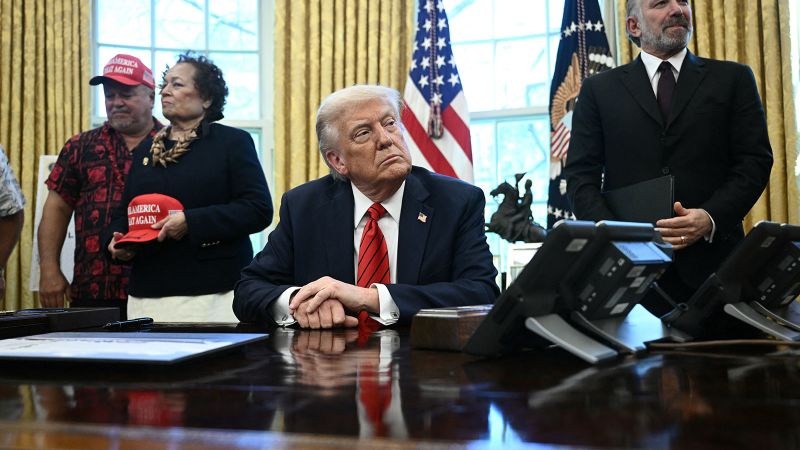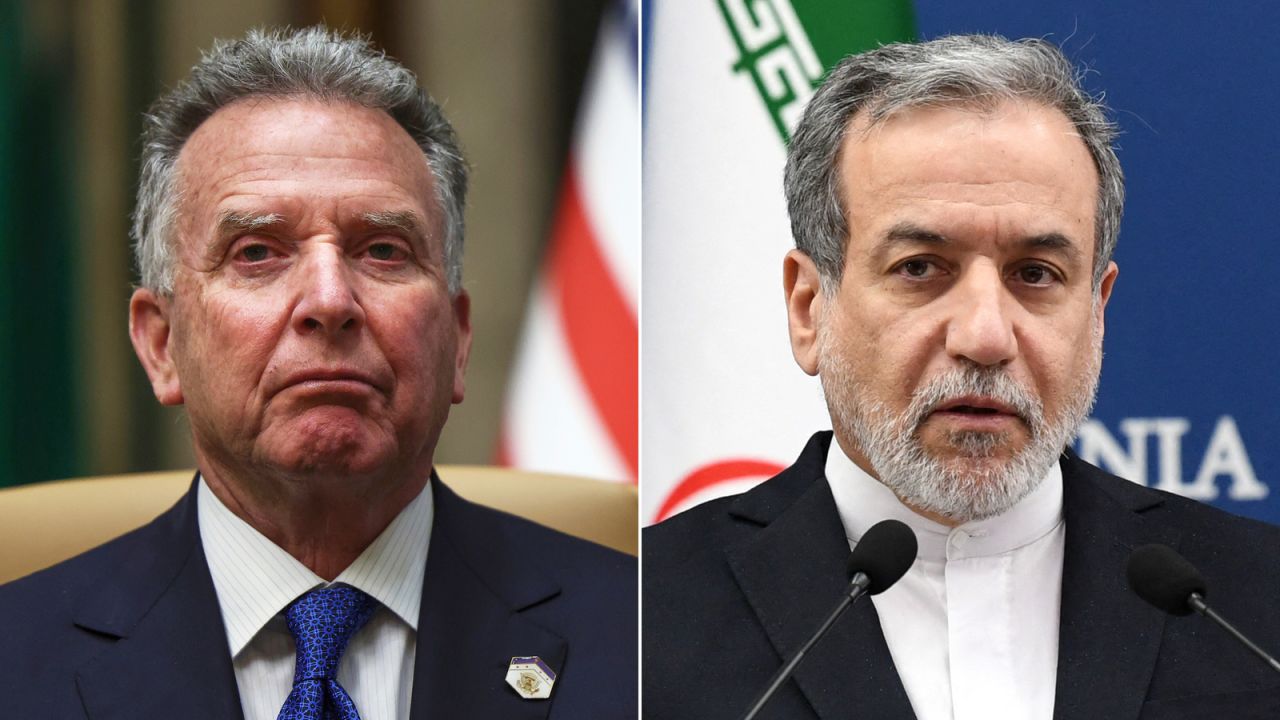London
CNN
—
The United Kingdom’s Supreme Court has ruled that a woman is defined by “biological sex” under the country’s equality law – excluding transgender women – in a case that is expected to impact accommodations for trans women in bathrooms, hospital wards, sports clubs and more.
The court ruling on Wednesday is limited to defining the term “woman” within the country’s Equality Act 2010, meaning trans women are no longer protected from discrimination as women, although they remain protected from discrimination in other forms.
But in practice, the impacts of the ruling are likely to be wider than the court suggested. The UK’s equalities regulator has said it will issue new guidance on single-sex spaces following the decision.
The ruling has also energized the polarized debate surrounding transgender rights.
Judges said the ruling should not be seen as the victory of one side over another. But trans rights advocacy groups have called that “an insult” and condemned the court decision as exclusionary, contradictory and concerning for the trans and non-binary communities.
The group of women’s rights campaigners that brought the case, For Women Scotland, popped champagne corks outside the court and said it was grateful for a decision that recognized the need for protections based on biological differences.
Here’s what the ruling means in practice:
Implications for equalities law and single-sex spaces
The head of the UK’s Equality and Human Rights Commission said Thursday that it will issue new guidance on single-sex spaces by this summer.
Those spaces will likely include women-only bathrooms, changing rooms, hospital wards, hostels, prisons, sports clubs, domestic violence women’s shelters and more.
Kishwer Falkner, the chair of the Equality and Human Rights Commission (EHRC), said in an interview with the BBC on Thursday that “the ruling is enormously consequential,” and it brings “clarity” that “single-sex services like changing rooms, must be based on biological sex.”
Falkner said that trans people can advocate for neutral third spaces, such as unisex toilets or changing rooms, given that “the law is quite clear” that they “should not be using that single-sex facility.”
Falkner also said the UK’s National Health Service must update its guidance on single-sex medical wards to be based on biological sex. Current NHS policy is that trans people should be accommodated according to the way they dress, their names and their pronouns.
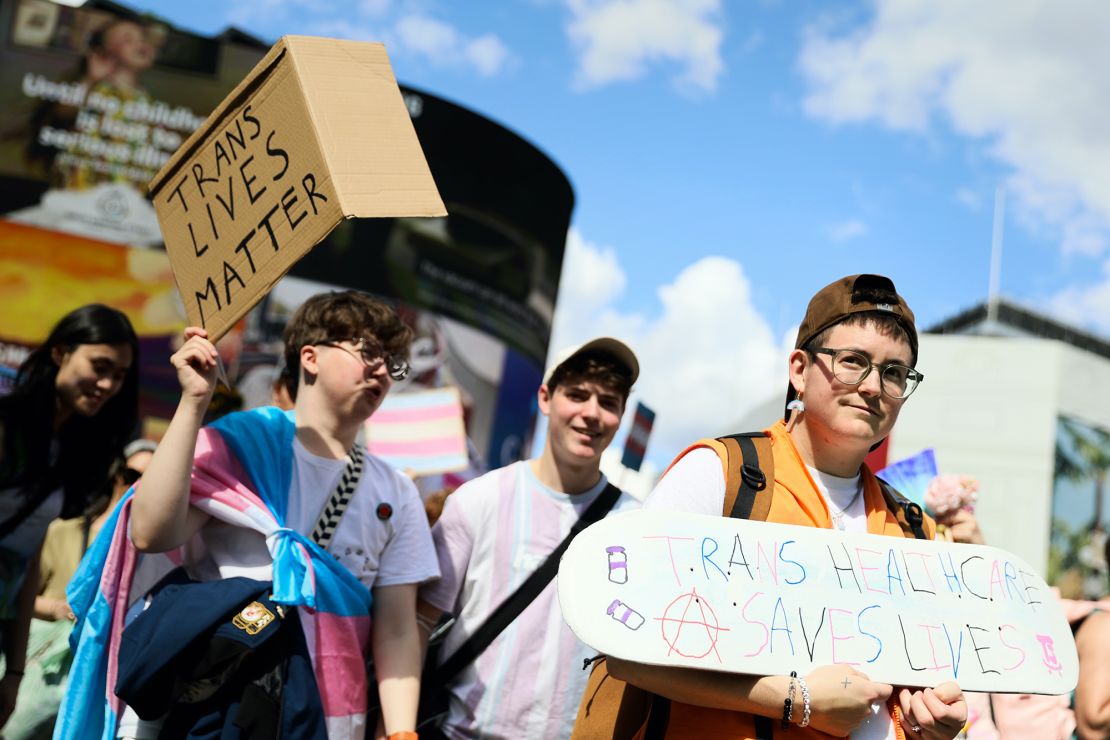
The ruling will also have implications for policing and prisons. The British Transport Police said in a statement that it would adopt an interim position that “any same sex searches in custody are to be undertaken in accordance with the biological birth sex of the detainee.”
Meanwhile, many businesses and organizations have said they are reviewing the ruling and not yet making any changes. British media report that the EHRC has been inundated with questions from businesses and public bodies regarding what the ruling means for schools, office buildings and women’s charities.
“Our updated guidance will cover service providers and public authorities, as well as some other areas; so both schools and sports clubs will be covered,” a spokesperson for the EHRC told CNN.
Trans people remain protected from discrimination on the grounds of gender reassignment, which is a protected characteristic under the equality legislation. The law also protects against discrimination by perception, which is when someone thinks you are the opposite sex.
The Supreme Court decision will impact women’s sports, but exactly how is unclear given that new guidance is in the works and many sports bodies and grassroots sports organizations already have their own policies in place.
Faulkner echoed the stance of World Athletics, telling the BBC that trans women cannot take part in women’s sports.
Guidance on transgender inclusion has already been published by all the sports councils covering England, Northern Ireland, Scotland and Wales, as well as UK Sport, which supports high-performance athletes. But it’s not yet clear how that guidance will be updated.
“We are now considering what the ruling means for grassroots sports and clubs,” a Sport England spokesperson said in a statement.
The trans community is “absolutely devastated, because this is clear that but there is no upside to this. We have been basically stripped of the right to exist within UK society,” said jane fae, one of the directors of the advocacy group TransActual UK.
“What this has done is we’ve put the UK back from where it was in terms of human rights,” fae told CNN, adding that the ruling appears to undermine the UK’s Gender Recognition Act 2004. “Here we are 20 years later, and it’s been completely, effectively thrown out of the window.”
Under that act, trans women could obtain a gender recognition certificate (GRC) for legal recognition of their female gender. But following the Supreme Court Ruling, those certificates appear to be only relevant in terms of deaths, marriages and pensions.
While the UK equalities watchdog talked of “clarity,” trans rights campaigners have said the Supreme Court Ruling raised more questions than answers, especially when it comes to the utility of gender recognition certificates and enforcement of “women’s spaces.”
TransActual has criticized the court for not providing a clear definition of the terms “women’s spaces” or “biological sex.” The ruling says a biological woman is someone “who was at birth of the female sex,” but it’s unclear how intersex people fit into the ruling or what accommodations should be made for trans women who have female anatomy parts (like breasts).
Although the court said it was not its place to rule on public arguments on the meaning of gender or sex, the decision has taken aim at a central argument of trans activists and progressive groups — that trans women are women.
And in doing so, it has ignited fears of broader “culture wars,” divisive policies and new restrictions in the UK.
On gendered bathrooms, for example, “the UK has had a much more laissez-faire attitude… what we seem likely to be about to see is the sort of imposition of an American style, ‘this is how loos should be,’ sort of thing,” fae said. “It’s Trump-ian.”
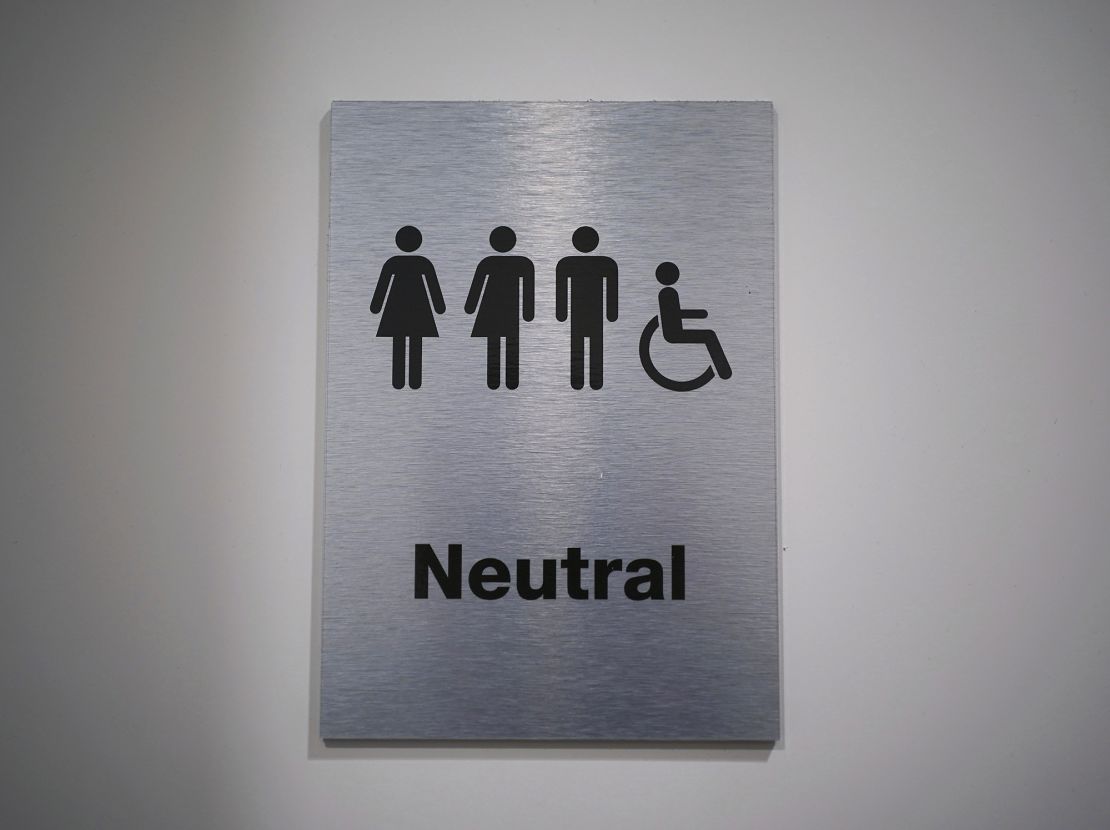
Following the ruling, JK Rowling, who financially backed the case, posted on social media: “I love it when a plan comes together.” The author and women’s rights campaigner has been previously criticized for anti-trans comments.
Other campaigners celebrated outside the court, singing “women’s rights are human rights” and holding up signs reading “Fact is not hate: only women get pregnant.”
But the backlash has been swift. Other women’s rights groups and LGBTQ+ advocacy organizations have condemned the ruling and said it rolls back protections provided by the Equality Act.
“Any backsliding should be of concern to everyone that stands against discrimination and oppression in all its forms,” said Scottish feminist organization Engender.
Stonewall, an LGBTQ+ rights charity, said that it shared “the deep concern at the widespread implications” of the court ruling. “It will be incredibly worrying for the trans community and all of us who support them,” it said in a statement, also highlighting that trans people are still protected against discrimination.
A coalition of pro-trans organizations and unions has called for a protest in London on Saturday, saying that the ruling “represents the culmination of the concerted transphobic campaigning we have seen in recent years.”
British Prime Minister Keir Starmer has so far been silent on the ruling. But a UK government spokesperson said single-sex spaces “will always be protected by this government.”
“We have always supported the protection of single-sex spaces based on biological sex. This ruling brings clarity and confidence, for women and service providers such as hospitals, refuges, and sports clubs,” the spokesperson said.
Starmer and the Labour Party have long struggled with how to address issues of sex and gender. The Supreme Court Decision means the prime minister can avoid wading into the divisive debate and point to the court’s language.
Meanwhile, the opposition Conservative Party has attacked him for past statements that trans women are women and calling for inclusivity in the debate.
“Saying ‘trans women are women’ was never true in fact and now isn’t true in law, either,” Conservative Party leader Kemi Badenoch said in reaction to the court ruling which see called “a victory for all of the women who faced personal abuse or lost their jobs for stating the obvious.”
Badenoch has also called for a review of equality acts and the Gender Recognition Act “to ensure that they are there to prevent discrimination, not for social engineering.”
The government’s next challenge will be wrestling with how to ensure public bodies, businesses and organizations implement the changes surrounding single-sex spaces.

